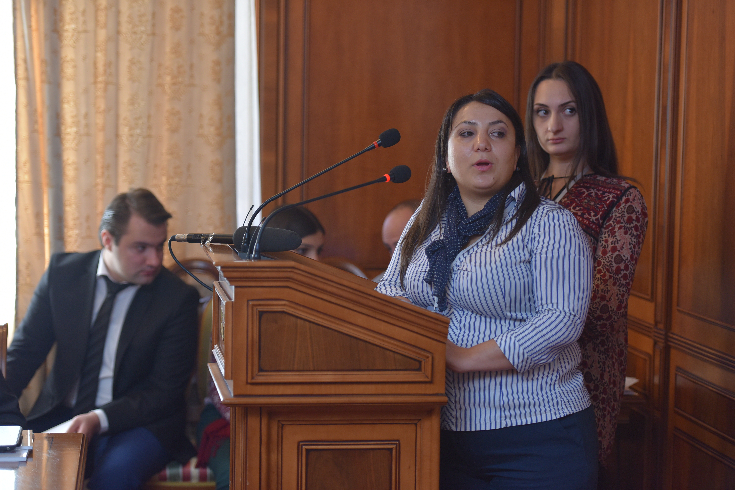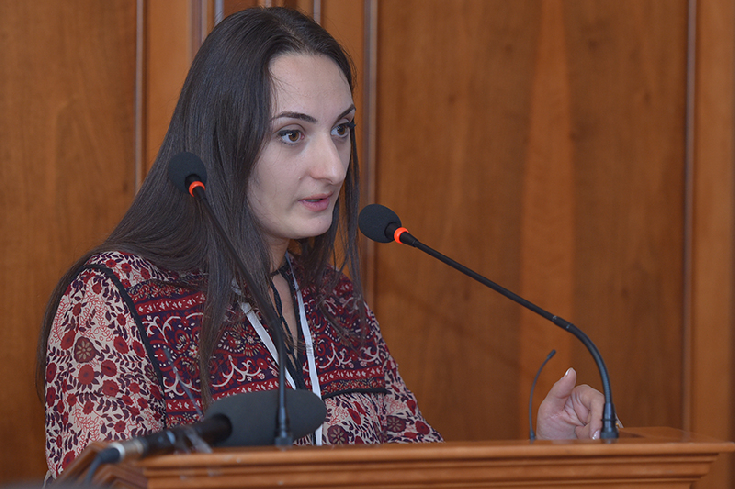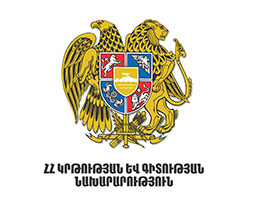
 ChessAcademy.am
ChessAcademy.am
The Impact of Chess on Mental Processes and Behavior of Children with SEN: Achievements and Challenges

Once chess became a compulsory component of public education, and when "Chess Educational Research Center” was established in Armenian State Pedagogical University, with the help of psychologists, sociologists and chess methodologists, research was carried out by specialists who deal with issues relating to inclusive education and children with SEN (special educational needs). The interview with them provides insight through detailed description, not only about the current problems (the solutions to which is possible only thanks to hard and persistent work), but also about the achievements that were gained after we gradually implemented inclusive education in all schools in Armenia. Chess was also taught in primary schools and was used as a tool for inclusion process of children with SEN.
Researcher Anna Charchyan, who is a special teacher and speech therapist, and psychologist Ani Khudoyan received the proposal to work at Chess Educational Research Centre in the Pedagogical University from Professor Vahan Sargsyan. The two specialists formed the team that was going to carry out a research on inclusive education. For already two years, they have been studying the individual behavior and psychology of children with SEN. The studies are not aimed to reveal pupils with special talent in chess, as chess is already part of the secondary school curriculum, but rather to find out what impact it can have on the intellectual and mental development of children with SEN.
Up to now studies have been conducted by researchers through which an attempt has been made to reveal the impact of chess on children's behavior, i.e. how the nature of child is being changed in case of studying chess. The other part of the research shows how chess improves children’s speech and realization of mental and psychological processes. As the target group of the research children with intellectual development disorders of autism and hyperactivity were chosen. A more accurate analysis of the research carried out by the specialists can be done after continuous implementation of studies for several years. Taking into consideration this fact, to obtain more accurate data for the preliminary stage of research, children with who did not severely suffer from disorders were chosen in order to make short-term visible effects of chess on them. Naturally, if children with serious mental problems are selected as an exploration target group, the research, of course, will require a longer time.
Firstly, memory, attention, sensory perception, imagination and spatial perception of children with SEN was explored. The study of memory of these children is particularly informative because, in general they all have well-developed mechanical, including auditory and visual memory. It is the type of human memory that has nothing to do with person’s semantic perception. So in this case, chess is used as a tool to develop proper exercise of psychological processes.
In addition to speech and mental abilities, the other important element of child’s mental development is the formation of his or her personal qualities according to his or her age. From this perspective, the most important thing is that through teaching of chess, it is possible to develop effective interaction and communication from children with SEN with their peers. The vast majority of these children, despite attending inclusive schools, face the problem of being isolated. In this context, there are very important functions of chess as being a game and having a specific way of teaching chess helps children with SEN to communicate with their peers easily. The co-operative nature of the game is very important for all of the children. For children with SEN, chess can be a useful tool in helping them have interactive contact with their peers and the ability to establish personal relationships with them through chess.
Chess is the best way for effective management of these processes. For example, as it is well known, children with autism have communication disorders, and as a result, sufferers generally tend to be isolated from the social environment, be it at home, on the street or at school. Along with other methods of Special Education and Pedagogy, chess is also a good way to organize the process of socialization effectively.
During the meeting, experts addressed those problems that must be overcome in order to arrange full inclusion of children with SEN. In this sense, the most important factor for productive learning process is the high qualified teacher. Experts note that although the future teachers doing Bachelor’s or Master’s degrees in Pedagogical University study subjects related to inclusive education, they do not possess the methodology that is necessary for working with children with SEN. That is why teachers who cannot work effectively with children with SEN offer to organize the learning process of these children with the help of a special teacher and psychologist. It turns out that the inclusion actually loses its meaning as the children with SEN again are being isolated from their peers. In other words, the teacher is unable to implement the principles of layer learning and to ensure the active participation of all children in the educational process.
As is well known, one of the main principles of pedagogy is that while working with a group of students, whether the class is composed of three or 33 students, the teacher has to split them into strong, medium and weak conventional groups. It is necessary that teacher has a bunch of tasks, corresponding to the level of each group which will help all pupils be interested and engaged in the learning process. In order to implement this structure, teachers must possess special skills so that they are able to identify and organize the learning process of pupils with different interests and abilities, avoiding the situation when some of the pupils are neglected or bored. In this context, let us consider the example of a child with mental retardation. If the child’s speech and mental processes are affected, but at the same time he/she has a well-developed mechanical memory, it is possible to develop his or her other possibilities by chess through the use of such abilities as hearing and vision. In this sense, chess has a unique magical effect and it serves as an indispensable tool to boost the development of children’s saved abilities. If the learning process is organized properly children with attention deficit as well as children who are hyperactive are interested in chess. In the case of mental retardation, a large number of mental abilities are preserved, and among them is imagination - an ability which is of primary importance for a creative approach to chess. If these children's imagination is used in the best way, it becomes possible to find non-standard solutions to the chess problems raised in textbooks for elementary school chess.

It is important to implement such methods in the learning process, which will not only include children with SEN in the educational process, but will also ensure their continued interest in the subject helping them to get socialized actively. To implement this process, the international experience in this field has to be studied properly in order to allow teachers to organize the learning process of children with SEN along with other pupils. Another important fact should be noted: transition to inclusive education is a long process and will last until 2025, but not all the parties of the process are fully prepared to this reform, including teachers, parents as well as all the children. In this regard, it is important that the public realizes the fact that it is not the child who must adapt to the world around, but rather the education system that must adapt to the special conditions that children require. This approach should be applied not only at school, but also in kindergarten and the playground. The public should realize that any individual needs integration regardless of whether he needs special attention or not, and that children with SEN need double this attention and treatment. In this context it should also be noted that physical environment should also be adapted to children with disabilities. It means, for example, that children with locomotor disabilities should be given the opportunity to move freely and to organize their daily routine. For this purpose, it is necessary to have not only ramps in schools but also classrooms equipped with special desks for disabled children.
Trying to help chess teachers who work with children with SEN to organize their active participation in the educational process, experts developed a special guides for teachers, which will help attract attention of children with SEN. The essay entitled “Why I love chess” written by children revealed the reasons of children's sympathy towards chess. Chess, for example, gives autistic or hyperactive children who have high level of intelligence the ability to analyze their own behavior and its positive and negative aspects. Teaching of chess in elementary schools helps children with mental retardation to shape spatial imagination, as when the child perceives position of this or that figure on the chess board, it makes a positive impact on its skills of spatial perception and visual thinking.
As a subject for future research, experts dealing with issues of inclusive education are planning to perform a research that will help to clarify the impact of chess on autistic, hyperactive and mentally disabled children. All of these studies will be aimed at finding out the best ways to ensure the inclusion of children with SEN through learning of chess creating an opportunity for them to show the best of their abilities. There are also future plans to make research in special schools, where, in contrast to inclusive schools, children with serious disabilities are studying who have speech, hearing, vision, motor system and mental development problems. These researches will allow us to find out the best ways to implement inclusive education and will help the teachers who are involved in the daily activities with children with SEN.
By Tatev Khachatryan




